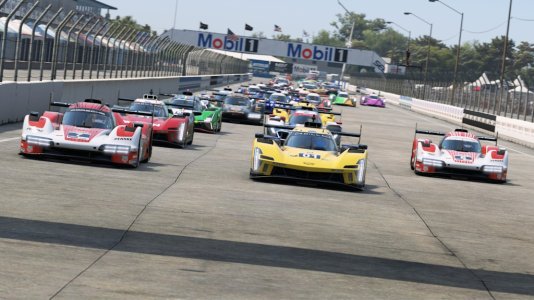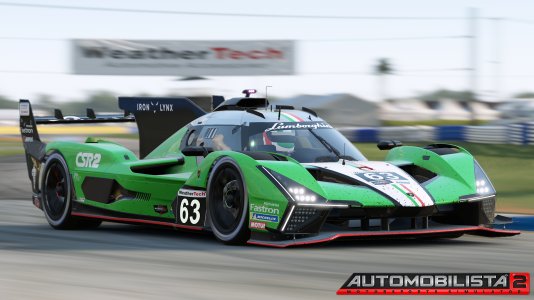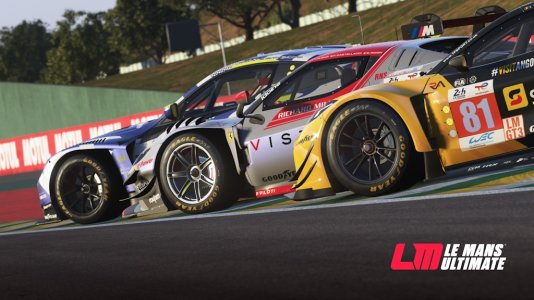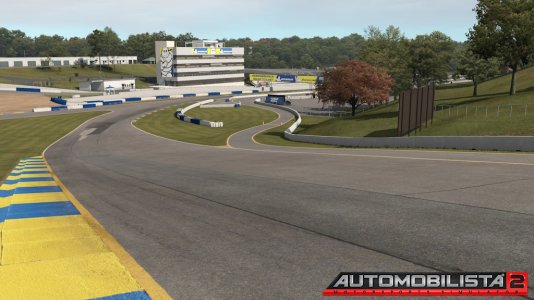Game mode is seemingly getting some improvements in the October build of Windows 10, at least feature wise. Wonder if it will be any different in actual performance though.
_____
Anyway, got the i7-3770K in the rig and it seems to be a good chip, got it to the 4.4 GHz I wanted for this test without needing to do anything crazy.

Now the results for my testing in ACC are quite interesting indeed. Each test is the opening lap of a race with 20 opponents starting in last place using Afterburner's benchmark utility:
Time: 16:00, Conditions: Clear
i5 2500K at 4.4 GHz:
Average framerate : 69.1 FPS
Minimum framerate : 58.9 FPS
Maximum framerate : 82.9 FPS
1% low framerate : 50.3 FPS
0.1% low framerate : 40.1 FPS
i7 3770K at 4.4 GHz:
Average framerate : 73.3 FPS
Minimum framerate : 64.8 FPS
Maximum framerate : 82.8 FPS
1% low framerate : 59.6 FPS
0.1% low framerate : 49.8 FPS
Time: 16:00, Conditions: Heavy Rain
i5 2500K at 4.4 GHz:
Average framerate : 60.1 FPS
Minimum framerate : 47.2 FPS
Maximum framerate : 71.3 FPS
1% low framerate : 41.6 FPS
0.1% low framerate : 27.9 FPS (this result here probably should be closer to the 1% figure, there was a major stutter in the middle and I should have retested thinking back)
i7 3770K at 4.4 GHz:
Average framerate : 63.8 FPS
Minimum framerate : 49.4 FPS
Maximum framerate : 78.3 FPS
1% low framerate : 50.6 FPS
0.1% low framerate : 43.5 FPS
Time: 00:00, Conditions: Clear
i5 2500K at 4.4 GHz:
Average framerate : 63.3 FPS
Minimum framerate : 47.7 FPS
Maximum framerate : 81.3 FPS
1% low framerate : 46.0 FPS
0.1% low framerate : 41.9 FPS
i7 3770K at 4.4 GHz:
Average framerate : 63.2 FPS
Minimum framerate : 49.6 FPS
Maximum framerate : 82.5 FPS
1% low framerate : 48.3 FPS
0.1% low framerate : 40.9 FPS
Time: 00:00, Conditions: Heavy Rain
i5 2500K at 4.4 GHz:
Average framerate : 56.4 FPS
Minimum framerate : 40.8 FPS
Maximum framerate : 74.0 FPS
1% low framerate : 41.0 FPS
0.1% low framerate : 37.5 FPS
i7 3770K at 4.4 GHz:
Average framerate : 55.3 FPS
Minimum framerate : 42.7 FPS
Maximum framerate : 74.6 FPS
1% low framerate : 41.3 FPS
0.1% low framerate : 38.4 FPS
The best improvements seem to be occurring where I'd expect them, in minimums and frametimes, especially in the daytime clear conditions with some OK improvements to the day/wet race. 20 car races in daytime conditions are very close to keeping close to a locked 60 which I'm quite happy with, and considering I'm now rocking a probably stable 4.6 GHz overclock so I think I'll be OK here (4.7 requires way too much voltage and heat to stay stable for me).
However the races in the night-time show close to zero improvement and to me sort of confirms their lack of optimisation status. My new CPU still had loads of headroom on most threads, operating at frequencies that at least put it close to the newer 4c/8t i7s at stock, while at the same time never hitting 100% GPU usage, and with UE4 being an engine that is quite nicely multi-threaded, there surely has to be some improvements coming here as even GPU optimisation is far from optimal.
Still, I'm happy with the cheap upgrade that puts off a full new build for a little while at least and looking forward to see how things improve from 0.1 to 1.0.

Just a disclaimer: Even though I'm positive most of the results here are CPU limited, I really can't guarantee that my GPU wasn't at play here, even if I'm positive it never hit close 100% GPU usage in any test across the i5 and i7. I tested at 1080p using high settings which should well within range for a GTX 1070, but looking back I should have probably tested at 720p using low settings despite it not really being a real-world playing scenario. I'm in no mood to swap over the CPU again so this will have to do, but will update the thread my findings with the i7 at 720p low at 4.6 GHz and see if there's any significant improvement.









